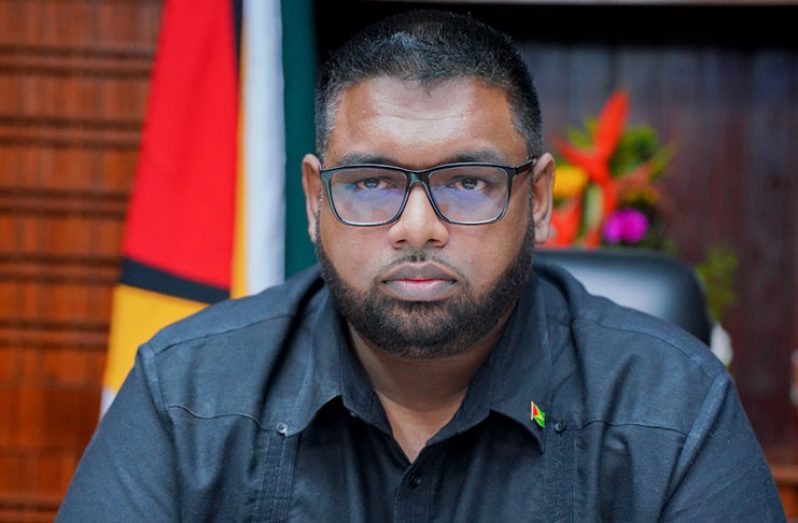– President Ali calls for increased mobilisation of resources to halt biodiversity loss
THE degradation of the earth’s biodiversity is being exacerbated by the effects of the dreaded novel coronavirus (COVID-19) and this is resulting in a substantial increase in global poverty, said President, Dr. Irfaan Ali.
President Ali while speaking on behalf of the Group 77 and China at a United Nations (UN) Summit on Biodiversity, said: “The Group is deeply concerned that our already daunting development challenges have been gravely exacerbated by the COVID-19 pandemic. Its impacts are certain to go well beyond 2020, eroding the development gains achieved over many decades and could hinder efforts to halt global biodiversity loss.”
The increase in biodiversity loss continues to and will further hinder the achievement of the 2030 Sustainable Development Agenda, resulting in adverse impacts on people and planet. Likewise, poverty and the insufficient results in the achievement of many sustainable development goals place additional burden on the environment and on any process to halt biodiversity loss.
“Therefore, we call for a commitment to increase the mobilisation of resources to allow for the actions needed to halt biodiversity loss. This will involve developed countries substantially increasing their financial commitment to the implementation of the post-2020 global biodiversity framework in developing countries,” said President Ali.
He said the COVID-19 pandemic has emphasised the importance of the relationship between people and nature. And, the President believes that this recognition must increase awareness of the need to ensure a harmonious balance between human activity and nature.
“We must emphasise the importance of biological diversity to present and future generations,” said President Ali, adding that the Group is ready to work for a successful 15th meeting of the Conference of the Parties to the Convention on Biological Diversity, under the theme “Ecological civilization: building a shared future for all life on Earth.”
The Group of 77 and China is convinced that urgent and significant actions are needed to reduce the degradation of natural habitats, halt biodiversity loss, protect and prevent the extinction of threatened species.
“We are deeply concerned that up to one million species currently face the threat of extinction, more than at any other time in human history. And we deeply regret the potentially high number of species that disappeared in the past centuries, most of which have gone unaccounted for.
“We urge the international community to strengthen its efforts to counter these trends and protect the ecosystems, including the restoration of degraded forests, and to substantially increase afforestation, reforestation and conservation globally, based on the principle of common but differentiated responsibilities,” said President Ali.
Halting biodiversity loss is a common goal of humanity. Every country should be engaged in this endeavor to the best of its capability.
With respect to the oceans, the group believes that countries must remain steadfast in deliberations, with a view to concluding the negotiations for an international legally-binding instrument, under the United Nations Convention on the Law of the Sea, on the conservation and sustainable use of marine biological diversity of areas beyond national jurisdiction.
Ali told the summit that since ratifying the Convention on Biological Diversity in 1994, Guyana has made progress in mainstreaming biodiversity in priority sectors such as agriculture, mining and ecotourism. Guided by the Low Carbon Development Strategy and the SDGs, the country has improved surveillance and inspections of mining and logging operations.
The country has maintained a low deforestation rate and undertaken other measures, aimed at protecting the physical environment.
The president said Guyana’s biodiversity vision is to ensure that by 2030, the country’s biodiversity is sustainably utilised, managed and mainstreamed in all sectors, contributing to the advancement of the country’s bio-security, and socio-economic development along a low carbon development trajectory.



.jpg)








